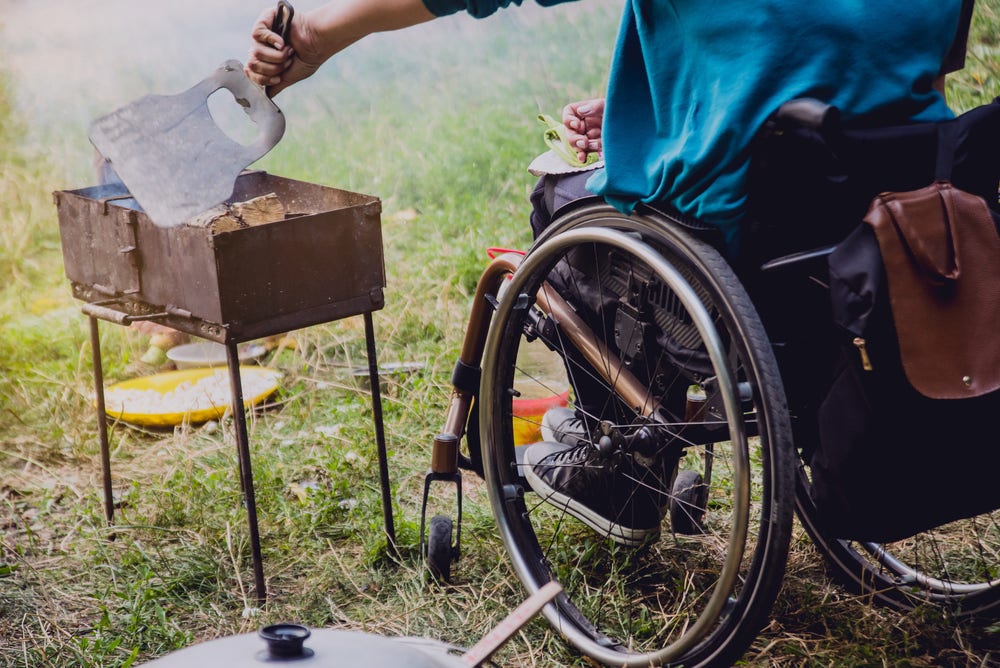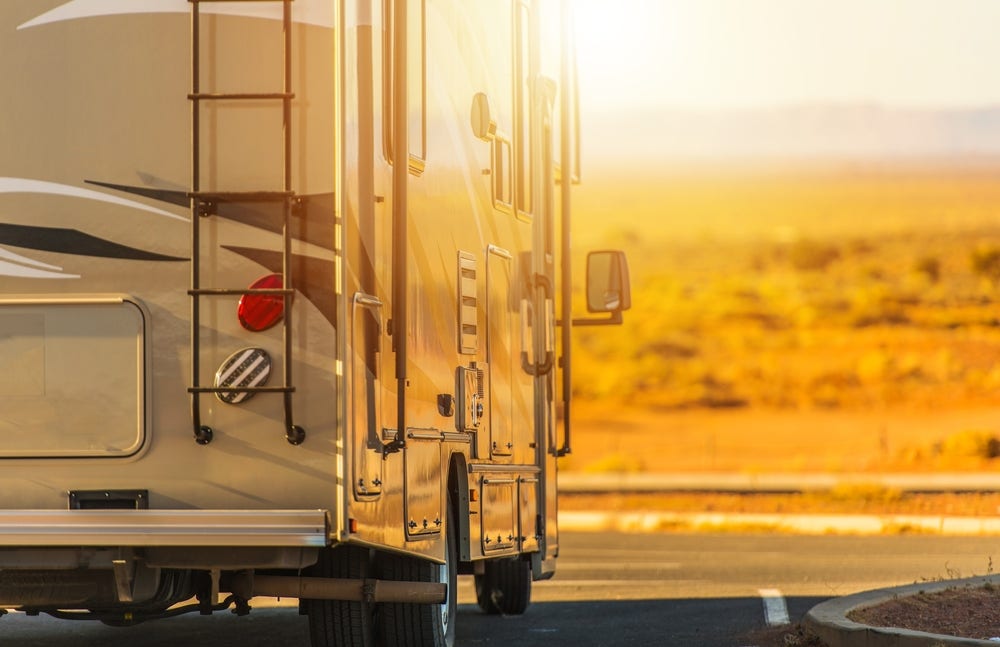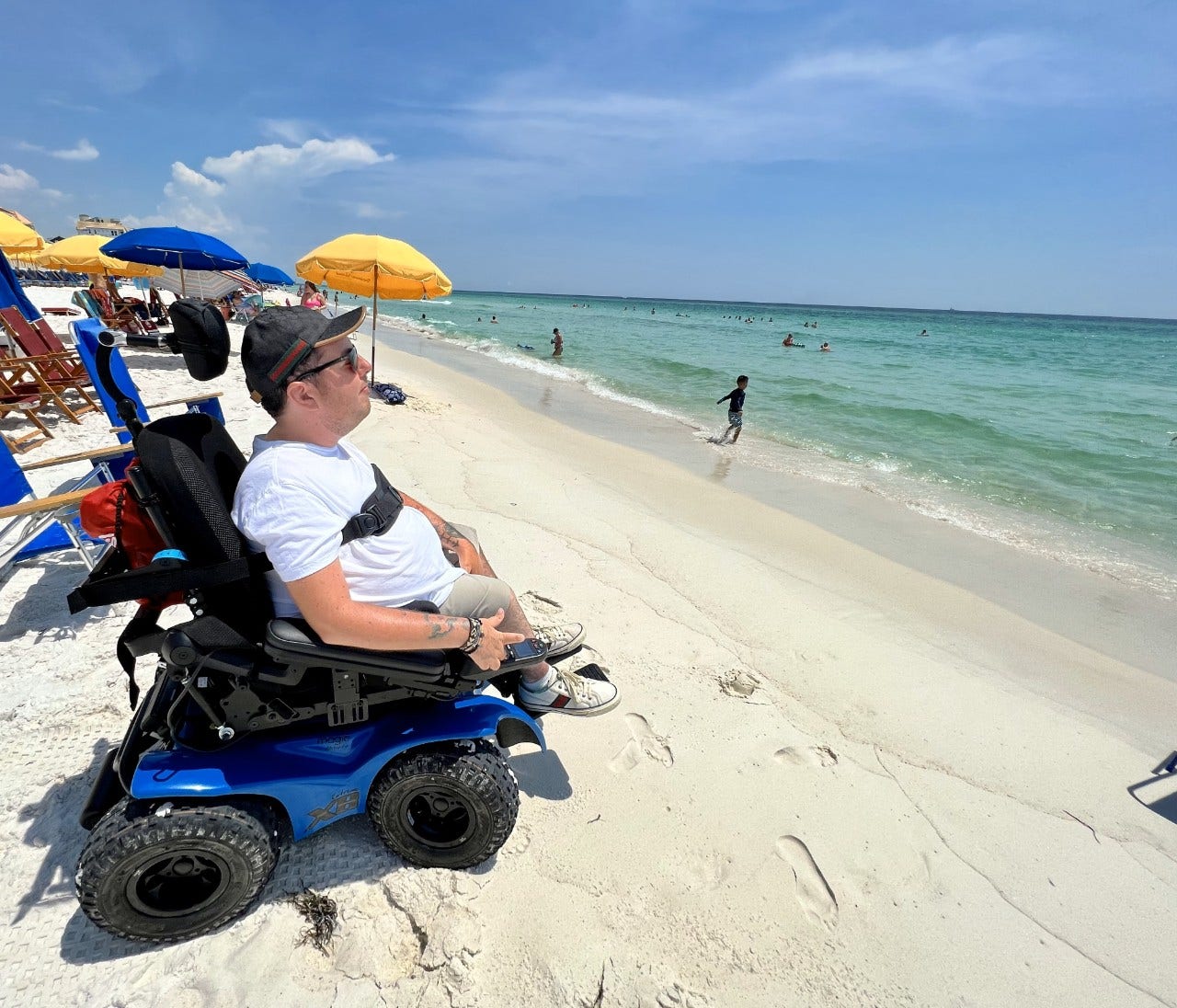
Camping Gear Checklist for Wheelchair Users
Did you know being in nature can positively contribute to physical well-being? Health benefits aside, camping can be an affordable and accessible way to explore the great outdoors.
Camping in a wheelchair is much easier if you have the right gear. From accessible tents to adaptive cooking equipment and all-terrain mobility aids, a checklist outlining the most important considerations and items to bring will make your camping experience more accessible and enjoyable.
Understanding the Needs of Wheelchair Users
Before you consider a camping destination, you’ll want to consider the needs of the wheelchair user including:
- Medical Needs: If you're heading to a remote area, pack enough medical supplies, such as feeding tube formula or IV bags, to avoid running out as access to more supplies may be limited.
- Mobility Aids and Assistive Devices for Outdoor Activities: Everyday wheelchairs and mobility aids might not be suitable for extensive outdoor activities. For uneven terrain, consider renting an all-terrain wheelchair. If you use crutches, canes, or walkers, replace the rubber-tipped bottoms with ones better suited for outdoor use.
- Choosing an Accessible Campsite: Select a campsite with accessible facilities, including accessible hiking trails and restrooms. Whether you prefer a tent, RV, or cabin, ensure your lodging is suited to your needs for both accessibility and comfort. U.S. national parks are a great option too, as U.S. citizens with permanent disabilities can get a lifetime pass for free entry. Many of these parks offer accessible campsites, trails, and all-terrain wheelchair rentals.
Essential Camping Gear for Wheelchair Users
Here are essential items to consider when packing for a camping trip:
- Tent: If you plan to stay in a tent, ensure it has enough space for you to move around in your wheelchair. Even if you're camping alone, larger tents, like those meant for four to six people, may be ideal for wheelchair users.
- Cot: Those who will sleep in a tent may want to consider a cot, which can make sleeping more comfortable.
- Shower Chair: If you cannot stand while bathing, consider bringing a shower chair. Depending on your lodging, you may have less space than in a traditional home tub or shower, so you might need to choose a smaller shower chair than you're used to.
Whether you have a disability or not you’ll want to consider common camping gear including but not limited to:
- Weather protection: Raincoats are ideal for those using mobility aids, as they keep hands free for wheelchair, crutch, walker, or cane use. Also, consider packing clothing that can be layered in case you get too warm or too cold.
- Sleeping bags, blankets, sleeping pads, and pillows: Regardless of where you stay, ensure you can keep comfortable and bring essentials for sleeping.
- Camping chairs: If you plan to get out of your wheelchair or simply need a place to rest, consider bringing a camping chair.
- Hammocks: If you can use a traditional hammock or hammock chair, consider bringing one. These provide a place to relax other than your wheelchair. Their design can often reduce the risk of pressure sores, which wheelchair users can get if seated for too long.
- Cooking Utensils: Consider packing basic cooking utensils if you plan to make your own meals. Some people with disabilities may utilize adaptive cooking utensils, so you’ll want to consider packing those too.
- Other items: Be sure to pack any toiletries, snacks, entertainment, and first aid items too.
Safety and Accessibility Precautions
When planning a camping trip as a wheelchair user, it is important to prioritize safety and accessibility. Here are key precautions to keep in mind:
- Emergency Preparedness for Wheelchair Users: Be prepared for unexpected situations while camping. Bring a first aid kit, extra medications, and your health insurance card to help take care of any unforeseen medical needs while camping. Also, familiarize yourself with the campsite’s emergency protocols and communicate any specific needs or concerns to the campsite staff.
- Weather: Consider weather conditions, especially if your disability affects temperature regulation or your mobility aid is sensitive to temperature. Avoid extreme heat to prevent overheating of both you and your equipment, like wheelchair batteries.
- Medical Devices: If you use battery-powered or corded medical devices, pack extra batteries and check for electrical access at your campsite.
Additional Considerations for Wheelchair Campers
When it comes to enjoying the great outdoors, wheelchair users may face unique challenges. However, with the right preparation and resources, camping can be an exciting and accessible adventure for everyone. Here are some additional considerations to keep in mind for wheelchair campers:
Tips for Accessible Tent Setup
Setting up a tent can be made easier by choosing a tent with a spacious interior and a low threshold for easy entry. Look for tents that are specifically designed for wheelchair accessibility, with features like wider doorways and ample interior space to maneuver comfortably.
Adapting Sleeping Arrangements for Wheelchair Users
Sleeping arrangements can be adapted to ensure comfort and convenience for wheelchair users. Look for sleeping bags that have a wider design for greater comfort. Alternatively, using a camping cot or an inflatable mattress can provide a more comfortable sleeping surface. It’s also important to ensure the chosen sleeping arrangement can fit within the dimensions of the tent.
Exploring Accessible Camping Programs and Resources
Many organizations and programs cater to wheelchair users and provide accessible camping experiences. Research accessible camping programs in your area or consider reaching out to disability-focused organizations for recommendations. These programs often offer accessible facilities, activities, and support to ensure a memorable camping experience.
By considering these additional factors, wheelchair users can enhance their camping experience and enjoy the great outdoors.
If you’re still planning your accessible camping trip, be sure to read our articles on wheelchair accessible RVs, and the Top Nine Wheelchair Accessible Campgrounds.
Accessible camping allows you to immerse yourself in nature, but if you're looking for a different type of accessible travel experience, our travel hub is full of resources. From visiting a wheelchair-friendly amusement park or beach to finding an accessible hotel room and renting a wheelchair accessible vehicle, visit our travel hub to plan your next accessible trip.




